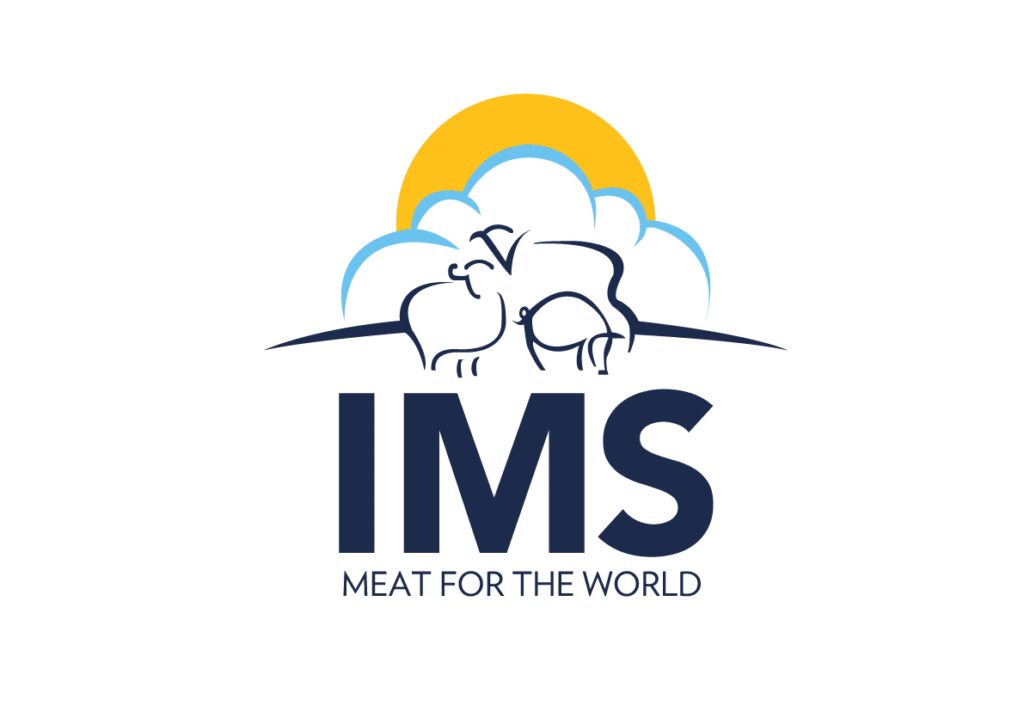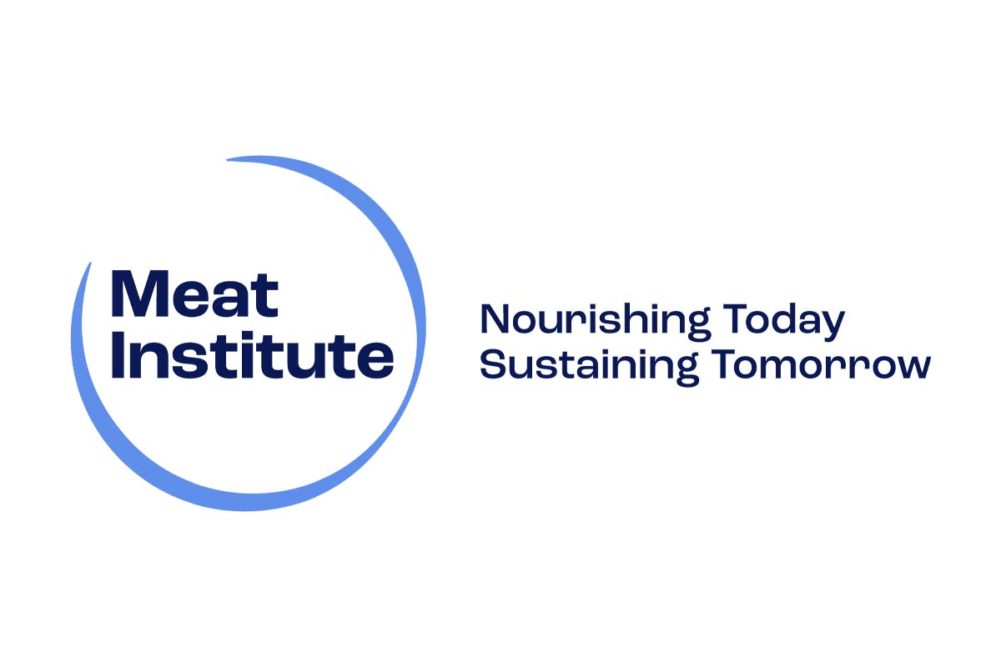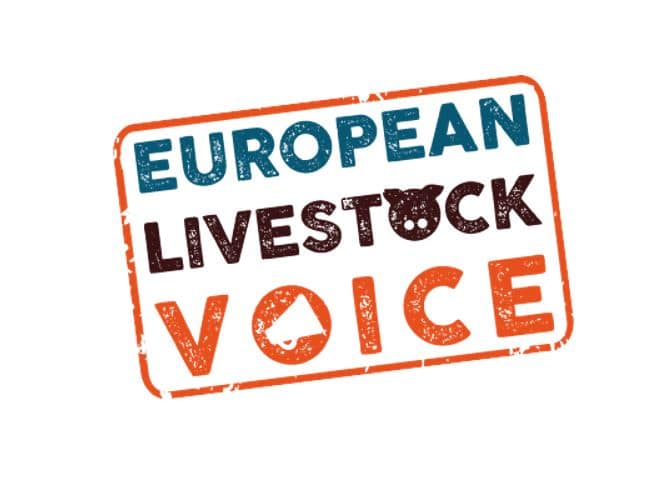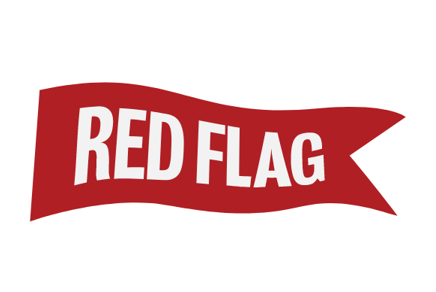Background
The International Meat Secretariat (IMS), also known as L’Office International de la Viande (OIV) and Oficina Permanente Intl. de la Carne (OPIC), is a global nonprofit organisation representing the meat industry.1“About the IMS,” International Meat Secretariat. Archived June 25, 2024. Archive URL: https://archive.ph/N8PoV
Founded in 1974 and headquartered in Paris, the IMS works to “promote the sustainable supply of safe, healthy, high-quality and nutritious animal protein, including beef, pig meat and sheep meat,” according to its website.2“About the IMS,” International Meat Secretariat. Archived June 25, 2024. Archive URL: https://archive.ph/N8PoV
The IMS organises the World Meat Congress, an international meat industry conference that takes place every two years.3“World Meat Congress 2022,” World Meat Congress. Archived May 20, 2022. Archive URL: https://archive.ph/XiNrv
It engages with international bodies including the World Trade Organization (WTO), the UN Food and Agriculture Organization (FAO), the Organization for Economic Co-operation and Development (OECD), the World Organization for Animal Health (OIE), the United Nations Economic Commission for Europe (UNECE), the United Nations Framework Convention on Climate Change (UNFCCC), and Codex Alimentarius, an international food standards-setting body established by the FAO and the World Health Organization (WHO) to “shape public policy and regulatory standards impacting the agri-food chain.”4 “About the IMS,” International Meat Secretariat. Archived June 25, 2024. Archive URL: https://archive.ph/N8PoV
As a member of the FAO’s Livestock Environmental Assessment and Performance (LEAP) Partnership,5“Livestock Environmental Assessment and Performance Partnership”, FAO. Archived June 25, 2024. Archive URL: https://archive.ph/6OnAx it was involved in shaping the FAO’s Global Livestock Environmental Assessment Model (GLEAM) methodology of estimating global animal agriculture emissions alongside other industry groups and environmental organizations.6“Tackling Climate Change through Livestock,” FAO, 2013. Archived June 24, 2024. Archive .pdf on file at DeSmog.
In 2020, the IMS signed an open letter urging authorities to refute “misinformation that tries to manufacture a link between livestock and the spread of Covid-19.”7 “Open letter stresses value of animal agriculture,” Beef Central. Archived February 24, 2024. Archive URL: https://archive.ph/jsuGt
Other signatories of the letter included:
- Animal Agriculture Alliance
- COPA-COGECA
- European Feed Manufacturers’ Federation (FEFAC)
- North American Meat Institute
Stance on Climate Change
At the Outlook 2020 conference organised by the Australian Bureau of Agricultural and Resource Economics and Sciences (ABARES), Secretary General of the International Meat Secretariat Hsin Huang stated: “We have all heard in the media for quite a long time now, it’s a recurring theme, that somehow the livestock sector and eating meat is detrimental to the environment. That it is a serious negative in terms of the climate change discussions. And my thesis to you […] is that we can actually as an industry, the livestock and meat industry, be the heroes in this discussion.”8“Hsin Huang – International Meat Secretariat,” YouTube video uploaded by user ABARES Outlook Conference on March 26, 2020. Archive .mp4 on file at DeSmog
At the meeting, Huang also stated: “[The livestock sector] cannot continue business as we have done in the past because if we are not proactive in helping to convince the public and policymakers in particular, who have an impact on our activities, if we are not successful in convincing them of the benefits that we bring to the table, then we will be relegated to has-beens.”9“Hsin Huang – International Meat Secretariat,” YouTube video uploaded by user ABARES Outlook Conference on March 26, 2020. Archive .mp4 on file at DeSmog
Discussing the Paris Agreement in a 2016 interview with Geographical, the magazine of the British Royal Geographical Society, Huang stated that the animal agriculture sector needs to “show that we are making tremendous efforts in reducing greenhouse gas emissions” and that “the FAO estimates that by improving techniques in the developing world we can cut [livestock sector] emissions by 30 percent.”10Mark Rowe, “The True Cost of Meat,” Geographical, December 25, 2016. Archived December 11, 2021. Archived .pdf on file at DeSmog.
Key Narratives
The IMS promotes a number of narratives to justify the meat industry’s business model. Find out more about how the meat industry is climate-washing its activities in our investigation. And you can read counter-arguments and criticisms of these narratives in our factsheet.
‘Animal agriculture isn’t a serious driver of climate change’
‘Criticism of animal agriculture’s climate impact is often unscientific’
Sustainability was prominent on the planned agenda of the World Meat Congress, hosted by the IMS and postponed from 2020 to 2022 due to the COVID-19 pandemic. On the topic, the IMS said: “The meat industry has been relentlessly attacked for its impact on greenhouse gas emissions, resource use, and animal welfare. But this view is often based on poor, selective evidence and data that does not consider the range of impacts and tradeoffs that constitute a sustainable future for the livestock and meat industries. In short, the reality across the globe is much more nuanced.”11 “World Meat Congress 2022,” World Meat Congress. Archived May 20, 2022. Archived .pdf on file at DeSmog
‘Grazing supports biodiversity’
According to the IMS, “pastures add to the landscape and the biodiversity of our planet.”12“IMS Factsheet,” International Meat Secretariat. Archived June 25, 2024. Archive .pdf on file at DeSmog. At the UNECE’s 2019 “Meat Quality for a Sustainable future” conference, the IMS claimed that “grazing livestock on permanent grassland with diverse species benefits biodiversity.”13“Achieving the Sustainable Development Goals, the Role of Livestock,” International Meat Secretariat. Archived June 24, 2024. Archive .pdf on file at DeSmog.
However, a 2020 study by researchers from the University of Alberta warned that scaling up livestock grazing to meet future food demand could threaten the biodiversity of herbivores and pollinators worldwide.14Filazzola et al., “The effects of livestock grazing are multi-trophic: a meta-analysis” DOI: 10.1111/ele.13527 Archive .pdf on file at DeSmog.
‘Meat produced in some countries isn’t damaging to the environment’
In 2016, Secretary General of the IMS Hsin Huang responded in an interview with Geographical, the magazine of the British Royal Geographical Society to the question of how the future meat demand in developing countries would be met, stating: “It makes sense to produce [meat] in countries that are already quite good at it, that have efficient techniques and lower emissions. There are lots of countries where you can produce it without having a negative impact on the environment – the countries that already have highly efficient and developed livestock sectors.”15Mark Rowe, “The True Cost of Meat,” Geographical, December 25, 2016. Archived December 11, 2021. Archived .pdf on file at DeSmog
A 2021 New York University (NYU) study showed that meat corporations based in countries that produce large amounts of meat could be a driving force for busting the climate goals of these countries.16Lazarus et al., “The climate responsibilities of industrial meat and dairy producers,” Climatic Change, March 2021. DOI: https://doi.org/10.1007/s10584-021-03047-7 Archive .pdf on file at DeSmog. The emissions of meat producer Danish Crown, for example, would be responsible for 42 percent of Denmark’s emissions target under the Paris Agreement by 2030 on a business-as-usual pathway.
‘Grazing uses land unsuitable for other uses’ and ‘Livestock convert inedible material into food for human consumption’
At the UNECE’s 2019 “Meat Quality for a Sustainable future” conference, the IMS argued that animal agriculture “uses mainly land not suited for crops and for which there is no other productive use” and that 86 percent of animal feed such as grass, biomass, crop residues and by-products are not edible for humans, citing an FAO report.17“Achieving the Sustainable Development Goals, the Role of Livestock,” International Meat Secretariat. Archived June 24, 2024. Archive .pdf on file at DeSmog. 18Mottet et al., “Livestock: On our plates or eating at our table? A new analysis of the feed/food debate,” Global Food Security, September 2017. DOI: https://doi.org/10.1016/j.gfs.2017.01.001. Archive .pdf on file at DeSmog.
At the ABARES 2020 Outlook conference, Huang stated in a presentation that “ruminants (on average globally) consume 0.6kg edible protein for every kg meat produced,” noting “we’re actually producing more from what we put in.”19“Challenges for the Meat Industry: We can be Heroes (or has-beens),” International Meat Secretariat. Archived March 19, 2023. Archive .pdf on file at DeSmog.
Discussing the Paris Agreement in a 2016 interview with Geographical, the magazine of the British Royal Geographical Society, Huang stated that “ruminant meat is in some respects one of the most benign meats going” because “ruminant livestock takes pasture – i.e. grasslands – that are not much good for other animals, and converts that into protein.”20Mark Rowe, “The True Cost of Meat,” Geographical, December 25, 2016. Archived December 11, 2021. Archived .pdf on file at DeSmog.
A 2018 Science study, however, estimates that the production of animal-based foods requires 83 percent of the world’s farmland yet provides only 37 percent of global protein and 18 percent of global calories.21Poore and Nemecek, “Reducing food’s environmental impacts through producers and consumers,” Science, June 2018. DOI: 10.1126/science.aaq0216 Archive .pdf on file at DeSmog. A 2019 study by environmental scientists from Harvard University found that transitioning to a more plant-based food production system in the UK has the potential to free up large areas of land currently used for grazing and animal feed production while improving the country’s carbon footprint and still meeting the population’s nutrition requirements.22Harwatt and Hayek, “Eating away at Climate Change with Negative Emissions,” Harvard Law School, April 2019. Archived June 25, 2024. Archive .pdf on file at DeSmog.
‘Plant-based diets do not solve the problem of climate change’
‘Calls for less meat consumption are unscientific and elitist’
At the ABARES Outlook 2020 conference, Huang referred to the EAT-Lancet report, which advocates for a reduction in global meat consumption for environmental reasons as an “elitist, biased, not scientifically well-founded study.”23“Hsin Huang – International Meat Secretariat,” YouTube video uploaded by user ABARES Outlook Conference on March 26, 2020. Archive .mp4 on file at DeSmog
When contacted by DeSmog for comment, the IMS replied that they were “far from alone” in voicing this type of criticism. However, none of the critics named by the IMS supported its claim that increased meat production is needed to feed the world’s growing population.
‘Less meat is wasted than fruit and vegetables’
At the ABARES Outlook 2020 conference, IMS’ Secretary General Hsin Huang stated: “The livestock sector does not get credit for reducing food waste. […] When you produce food for vegetarians, there is a lot of waste and that waste has to go somewhere. And as the livestock industry, we’re using that waste.”24“Hsin Huang – International Meat Secretariat,” YouTube video uploaded by user ABARES Outlook Conference on March 26, 2020. Archive .mp4 on file at DeSmog
Studies have found “plant-based diets are also more climate friendly when they are wasted,” however.25Chai et al., “Which Diet Has the Least Environmental Impact on Our Planet? A Systematic Review of Vegan, Vegetarian and Omnivorous Diets,” Sustainability, July 2019. Archived June 25, 2024. Archive .pdf on file at DeSmog. Researchers from the University of Michigan showed that “fruits and vegetables which comprise 33 percent of food waste [in the U.S.], account for only 8 percent of carbon dioxide emissions,” while animal products “account for 33 percent of food waste by mass and 74 percent of carbon dioxide emissions.”
‘Meat is needed for a healthy diet and to feed the world’
‘Meat is needed to feed the world’s growing population’
The IMS claims that livestock provides “vital nutrients to a growing world population as part of a healthy, sustainable diet.”26“IMS Factsheet,” International Meat Secretariat. Archived June 25, 2024. Archive .pdf on file at DeSmog.
A webpage for the 2022 World Meat Congress due to be hosted by the IMS states: “Many people in the world are malnourished, either lacking sufficient calories and nutrients, or consuming too many calories through poor diets. Meat and livestock products provide a highly efficient source of nutrition.”27“World Meat Congress 2022,” World Meat Congress. Archived May 20, 2022. Archive URL: https://archive.ph/XiNrv
A 2018 study published in Nature, however, found that reducing meat consumption is crucial to lowering the food system’s emissions and that “[i]f socioeconomic changes towards [meat-heavy] Western consumption patterns continue, the environmental pressures of the food system are likely to intensify, and humanity might soon approach the planetary boundaries for global freshwater use, change in land use, and ocean acidification.”28Springmann et al., “Options for Keeping the Food System within Environmental Limits,” Nature, 2018. DOI: doi.org/10.1038/s41586-018-0594-0 Archive .pdf on file at DeSmog.
‘Meat is an exceptional source of nutrients’
In a presentation at a 2015 meat industry conference hosted by Agri Benchmark, a global agricultural organization,29“Fedegán promueve Global Forum, en Valledupar,” El Heraldo, June 12, 2015. Archived June 25, 2024. Archive URL: https://archive.ph/Fnrkp
Huang stated that meat is a “nutrient dense – as opposed to energy-dense” food, providing “high quality protein, [the] right proportion of amino acids vs plant protein,” and an “ideal delivery package for essential micronutrients.”30“Meat for the World: It’s Sustainable!,” International Meat Secretariat. Archived May 21, 2021. Archived .pdf on file at DeSmog.
A 2011 study by nutritional scientists surveying 13,000 participants concluded that “vegetarian diets are nutrient dense, consistent with dietary guidelines, and could be recommended for weight management without compromising diet quality.”31Farmer et al., “A vegetarian dietary pattern as a nutrient-dense approach to weight management: an analysis of the national health and nutrition examination survey 1999-2004,” American Dietetic Association, June 2011. DOI: 10.1016/j.jada.2011.03.012. Archive .pdf on file at DeSmog.
‘Innovations in animal agriculture will tackle climate change’
‘New grazing techniques can sequester carbon’
The IMS identifies grassland management as one of “three priority areas where improving practices should bring large environmental, economic and social benefits.”32“IMS Factsheet,” International Meat Secretariat. Archived June 25, 2024. Archive .pdf on file at DeSmog
At the ABARES Outlook 2020 conference, Huang stated that livestock were a “potentially significant participant in carbon sequestration.” He argued that “unlike other industries that are polluting, like transportation, which are only really extractive industries taking carbon out of the soil, putting it through our petrol engines and then spewing it up into the air, […] with livestock it is actually largely a circular path. [By] better management of our resources, […] we can actually capture some of that carbon and put it back in the soil, and therefore, help with climate change.”33“Hsin Huang – International Meat Secretariat,” YouTube video uploaded by user ABARES Outlook Conference on March 26, 2020. Archive .mp4 on file at DeSmog
‘Better land management can enhance biodiversity’
At the ABARES Outlook 2020 conference, Huang stated: “Sustainability is not just about carbon emissions, […] it’s also about improvements in biodiversity through better management of our lands.” The argument echoes that made by the pesticides industry for farmers to pursue “regenerative agriculture” strategies.34“Hsin Huang – International Meat Secretariat,” YouTube video uploaded by user ABARES Outlook Conference on March 26, 2020. Archive .mp4 on file at DeSmog
‘Technological innovations will cut emissions’
A webpage for the 2022 World Meat Congress, hosted by the IMS, states that “technology, innovation and good practice – grounded in sound science – have the potential for the industry to significantly contribute to feeding the world sustainably while addressing societal concerns.”35“World Meat Congress 2022,” World Meat Congress. Archived May 20, 2022. Archive URL: https://archive.ph/XiNrv
The IMS identifies manure management as one of “three priority areas where improving practices should bring large environmental, economic and social benefits.”36 “IMS Factsheet,” International Meat Secretariat. Archived June 25, 2024. Archive .pdf on file at DeSmog
Lobbying
The IMS is a partner of the FAO’s Livestock Environmental Assessment and Performance (LEAP),37“Partners,” FAO. Archived October 3, 2024. Archive URL: https://archive.ph/6OnAx which along with other industry groups was involved in shaping the FAO’s Global Livestock Environmental Assessment Model (GLEAM) methodology of estimating global animal agriculture emissions.38“Tackling Climate Change through Livestock,” FAO, 2013. Archived June 24, 2024. Archive .pdf on file at DeSmog The emissions estimate resulting from this method is widely cited by industry and politicians.
In a 2013 report titled “Tackling Climate Change Through Livestock,” the FAO stated that “in some cases, the livestock sector has taken a leadership role in better identifying the environmental impacts of production and the potential mitigation options to reduce environmental impact” by identifying “[greenhouse gas] emission hotspots and reduction opportunities” and “enhancing efficiency across the supply chain.”39“Tackling Climate Change through Livestock,” FAO, 2013. Archived June 24, 2024. Archive .pdf on file at DeSmog The FAO supported these claims by pointing to initiatives from the International Dairy Federation (IDF) and the US Cattleman Association and citing a 2012 IMS report titled “Pigs and the environment: How the global pork business is reducing its impact.”
Affiliations
In 2012, the FAO announced it was partnering with the IMS and other industry groups and members, including the International Dairy Federation and the European Feed Manufacturers’ Federation (FEFAC), to “establish a shared understanding of how to assess the environmental performance of the livestock sector” and “improve that performance, and create more sustainable forms of production that will continue to provide food and income.”40“New effort to harmonize measurement of livestock’s environmental impacts,” FAO, July 2012. Archived May 21, 2023. Archived .pdf on file at DeSmog.
IMS is a member of the FAO’s Livestock Environmental Assessment and Performance (LEAP) Partnership, a multi-stakeholder initiative “committed to improving the environmental performance of livestock supply chains, whilst ensuring its economic and social viability.”41“Livestock Environmental Assessment and Performance Partnership – Partners”, FAO. Archived June 25, 2024. Archive URL: https://archive.ph/lYGNN The partnership has been “instrumental in the development of methods and assumptions underpinning GLEAM”.42“Tackling Climate Change through Livestock,” FAO, 2013. Archived June 24, 2024. Archive .pdf on file at DeSmog.
According to a 2021 study by researchers from the New York University’s Department of Environmental Studies, the involvement of industry groups in the LEAP Partnership likely allows “some influence over how their emissions are accounted for, and subsequently how their environmental impact is understood by the public.”43Lazarus et al., “The climate responsibilities of industrial meat and dairy producers,” Climatic Change, March 2021. DOI: https://doi.org/10.1007/s10584-021-03047-7 Archive .pdf on file at DeSmog.
Other LEAP partners include:44“Livestock Environmental Assessment and Performance Partnership – Partners”, FAO. Archived June 25, 2024. Archive URL: https://archive.ph/lYGNN
- International Feed Industry Federation – IFIF
- International Dairy Federation – IDF
- International Poultry Council – IPC
- International Egg Commission – IEC
- International Wool and Textiles Organization – IWTO
- International Federation for Animal Health – IFAH
- International Council of Tanners – ICT
- World Farmers’ Organization – WFO
- World Wildlife Fund – WWF
- World Vision International
- World Alliance of Mobile Indigenous Peoples – WAMIP
- International Planning Committee for food sovereignty – IPC
- International Union for Conservation of Nature – IUCN
- ISO
- TU Berlin
- Global Agenda for Sustainable Livestock
- Global Alliance for Climate Smart Agriculture
- Global Research Alliance
- Global Soil Partnership – GSP
- Joint Research Centre – European Food Sustainable Consumption and Production Roundtable
- Life Cycle Initiative
- UN Environment
- OIE
- Pastoralist Knowledge Hub Sustainable Food Systems Programme – SFS
- The World Bank
- UN Global Partnership on Nutrient Management
- Wageningen University & Research – WUR
Julie Anna Potts, president and CEO of the North American Meat Institute and former executive vice president of the American Farm Bureau Federation (AFBF), was a confirmed speaker at the World Meat Congress, hosted by the IMS in 2022.45“World Meat Congress 2022,” World Meat Congress. Archived May 20, 2022. Archive URL: https://archive.ph/XiNrv
The IMS is a partner of the FAO-led “Global Agenda for Sustainable Livestock” (GASL), a multi-stakeholder partnership working to “enhance the contribution of the livestock sector to sustainable development” that includes the governments of Argentina, Canada, Costa Rica, Cuba, Dominican Republic, Ecuador, El Salvador, Ethiopia, France, Ireland, Kenya, Mongolia, Netherlands, New Zealand, Panama, Paraguay, Rwanda, Switzerland, Uganda, and Uruguay.46“Embracing change and harnessing diversity: the roles of livestock in future sustainable food systems,” Global Agenda for Sustainable Livestock, June 2022. Archived June 25, 2024. Archive .pdf on file at DeSmog.
The World Meat Congress 2022 hosted by IMS was sponsored by financial and insurance company ING, IT company CONNEXT, the Mexican Beef Exporters Association, the National Confederation of Livestock Organizations (CNOG), Mexican agricultural company SOOTEC, Mexican pork producer Granjas Carroll de México, software company CSB-SYSTEM, Mexican pork and beef producer Consorcio Dipcen, and Mexican multinational food corporation SuKarne.47“World Meat Congress 2022,” World Meat Congress. Archived May 20, 2022. Archive URL: https://archive.ph/XiNrv
In 2018, the US government-sponsored Pork Checkoff program sponsored the World Meat Congress,48Ashley Williams, “Pork Checkoff to Sponsor World Meat Congress Event,” Food Navigator USA, May 19, 2018. Archived June 25, 2024. Archive URL: https://archive.ph/FEqFu co-hosted by the IMS and the US Meat Export Federation (USMEF).49“Dallas will be home for the World Meat Congress 2018 edition,” Euro Meat News, December 15, 2017. Archived June 25, 2024. Archive URL: https://archive.ph/ob84X
In 2015, IMS consultant Wilfrid Legg was the head of an expert panel advising the UN Committee on World Food Security (CFS).50“Activists Denounce Agribusiness Take-Over of UN Food Body,” Global Forest Coalition, October 16, 2015. Archived June 25, 2024. Archive URL: https://archive.ph/4Vu4i
Members
The IMS lists 98 members on it’s website, including:51“Members,” International Meat Secretariat. Archive October 3, 2024. Archive URL: https://archive.ph/0x36a
- Centre de liaison des industries transformatrices de viande de l’UE (CLITRAVI)
- Agriculture and Horticulture Development Board (AHDB)
- Vion Food Group
- Federación Empresarial de Carnes e Industrias Cárnicas (FECIC)
- United States Meat Export Federation (USMEF)
- Verband der Fleischwirtschaft
- Dutch Meat Association
- Bord Bia and Meat Industry Ireland
- 1“About the IMS,” International Meat Secretariat. Archived June 25, 2024. Archive URL: https://archive.ph/N8PoV
- 2“About the IMS,” International Meat Secretariat. Archived June 25, 2024. Archive URL: https://archive.ph/N8PoV
- 3“World Meat Congress 2022,” World Meat Congress. Archived May 20, 2022. Archive URL: https://archive.ph/XiNrv
- 4“About the IMS,” International Meat Secretariat. Archived June 25, 2024. Archive URL: https://archive.ph/N8PoV
- 5
- 6“Tackling Climate Change through Livestock,” FAO, 2013. Archived June 24, 2024. Archive .pdf on file at DeSmog.
- 7“Open letter stresses value of animal agriculture,” Beef Central. Archived February 24, 2024. Archive URL: https://archive.ph/jsuGt
- 8“Hsin Huang – International Meat Secretariat,” YouTube video uploaded by user ABARES Outlook Conference on March 26, 2020. Archive .mp4 on file at DeSmog
- 9“Hsin Huang – International Meat Secretariat,” YouTube video uploaded by user ABARES Outlook Conference on March 26, 2020. Archive .mp4 on file at DeSmog
- 10Mark Rowe, “The True Cost of Meat,” Geographical, December 25, 2016. Archived December 11, 2021. Archived .pdf on file at DeSmog.
- 11“World Meat Congress 2022,” World Meat Congress. Archived May 20, 2022. Archived .pdf on file at DeSmog
- 12“IMS Factsheet,” International Meat Secretariat. Archived June 25, 2024. Archive .pdf on file at DeSmog.
- 13“Achieving the Sustainable Development Goals, the Role of Livestock,” International Meat Secretariat. Archived June 24, 2024. Archive .pdf on file at DeSmog.
- 14Filazzola et al., “The effects of livestock grazing are multi-trophic: a meta-analysis” DOI: 10.1111/ele.13527 Archive .pdf on file at DeSmog.
- 15Mark Rowe, “The True Cost of Meat,” Geographical, December 25, 2016. Archived December 11, 2021. Archived .pdf on file at DeSmog
- 16Lazarus et al., “The climate responsibilities of industrial meat and dairy producers,” Climatic Change, March 2021. DOI: https://doi.org/10.1007/s10584-021-03047-7 Archive .pdf on file at DeSmog.
- 17“Achieving the Sustainable Development Goals, the Role of Livestock,” International Meat Secretariat. Archived June 24, 2024. Archive .pdf on file at DeSmog.
- 18Mottet et al., “Livestock: On our plates or eating at our table? A new analysis of the feed/food debate,” Global Food Security, September 2017. DOI: https://doi.org/10.1016/j.gfs.2017.01.001. Archive .pdf on file at DeSmog.
- 19“Challenges for the Meat Industry: We can be Heroes (or has-beens),” International Meat Secretariat. Archived March 19, 2023. Archive .pdf on file at DeSmog.
- 20Mark Rowe, “The True Cost of Meat,” Geographical, December 25, 2016. Archived December 11, 2021. Archived .pdf on file at DeSmog.
- 21Poore and Nemecek, “Reducing food’s environmental impacts through producers and consumers,” Science, June 2018. DOI: 10.1126/science.aaq0216 Archive .pdf on file at DeSmog.
- 22Harwatt and Hayek, “Eating away at Climate Change with Negative Emissions,” Harvard Law School, April 2019. Archived June 25, 2024. Archive .pdf on file at DeSmog.
- 23“Hsin Huang – International Meat Secretariat,” YouTube video uploaded by user ABARES Outlook Conference on March 26, 2020. Archive .mp4 on file at DeSmog
- 24“Hsin Huang – International Meat Secretariat,” YouTube video uploaded by user ABARES Outlook Conference on March 26, 2020. Archive .mp4 on file at DeSmog
- 25Chai et al., “Which Diet Has the Least Environmental Impact on Our Planet? A Systematic Review of Vegan, Vegetarian and Omnivorous Diets,” Sustainability, July 2019. Archived June 25, 2024. Archive .pdf on file at DeSmog.
- 26“IMS Factsheet,” International Meat Secretariat. Archived June 25, 2024. Archive .pdf on file at DeSmog.
- 27“World Meat Congress 2022,” World Meat Congress. Archived May 20, 2022. Archive URL: https://archive.ph/XiNrv
- 28Springmann et al., “Options for Keeping the Food System within Environmental Limits,” Nature, 2018. DOI: doi.org/10.1038/s41586-018-0594-0 Archive .pdf on file at DeSmog.
- 29“Fedegán promueve Global Forum, en Valledupar,” El Heraldo, June 12, 2015. Archived June 25, 2024. Archive URL: https://archive.ph/Fnrkp
- 30“Meat for the World: It’s Sustainable!,” International Meat Secretariat. Archived May 21, 2021. Archived .pdf on file at DeSmog.
- 31Farmer et al., “A vegetarian dietary pattern as a nutrient-dense approach to weight management: an analysis of the national health and nutrition examination survey 1999-2004,” American Dietetic Association, June 2011. DOI: 10.1016/j.jada.2011.03.012. Archive .pdf on file at DeSmog.
- 32“IMS Factsheet,” International Meat Secretariat. Archived June 25, 2024. Archive .pdf on file at DeSmog
- 33“Hsin Huang – International Meat Secretariat,” YouTube video uploaded by user ABARES Outlook Conference on March 26, 2020. Archive .mp4 on file at DeSmog
- 34“Hsin Huang – International Meat Secretariat,” YouTube video uploaded by user ABARES Outlook Conference on March 26, 2020. Archive .mp4 on file at DeSmog
- 35“World Meat Congress 2022,” World Meat Congress. Archived May 20, 2022. Archive URL: https://archive.ph/XiNrv
- 36“IMS Factsheet,” International Meat Secretariat. Archived June 25, 2024. Archive .pdf on file at DeSmog
- 37
- 38“Tackling Climate Change through Livestock,” FAO, 2013. Archived June 24, 2024. Archive .pdf on file at DeSmog
- 39“Tackling Climate Change through Livestock,” FAO, 2013. Archived June 24, 2024. Archive .pdf on file at DeSmog
- 40“New effort to harmonize measurement of livestock’s environmental impacts,” FAO, July 2012. Archived May 21, 2023. Archived .pdf on file at DeSmog.
- 41
- 42“Tackling Climate Change through Livestock,” FAO, 2013. Archived June 24, 2024. Archive .pdf on file at DeSmog.
- 43Lazarus et al., “The climate responsibilities of industrial meat and dairy producers,” Climatic Change, March 2021. DOI: https://doi.org/10.1007/s10584-021-03047-7 Archive .pdf on file at DeSmog.
- 44
- 45“World Meat Congress 2022,” World Meat Congress. Archived May 20, 2022. Archive URL: https://archive.ph/XiNrv
- 46“Embracing change and harnessing diversity: the roles of livestock in future sustainable food systems,” Global Agenda for Sustainable Livestock, June 2022. Archived June 25, 2024. Archive .pdf on file at DeSmog.
- 47“World Meat Congress 2022,” World Meat Congress. Archived May 20, 2022. Archive URL: https://archive.ph/XiNrv
- 48Ashley Williams, “Pork Checkoff to Sponsor World Meat Congress Event,” Food Navigator USA, May 19, 2018. Archived June 25, 2024. Archive URL: https://archive.ph/FEqFu
- 49“Dallas will be home for the World Meat Congress 2018 edition,” Euro Meat News, December 15, 2017. Archived June 25, 2024. Archive URL: https://archive.ph/ob84X
- 50“Activists Denounce Agribusiness Take-Over of UN Food Body,” Global Forest Coalition, October 16, 2015. Archived June 25, 2024. Archive URL: https://archive.ph/4Vu4i
- 51“Members,” International Meat Secretariat. Archive October 3, 2024. Archive URL: https://archive.ph/0x36a





